The kids and I are finishing up Lesson 3 in the Exploring Creation with Astronomy book. This lesson is on Mercury. The kids learned that it is the first planet in the solar system and is the closet planet to the sun. Mercury is a terrestrial planet, meaning it earth-like. While the planet can get extremely hot during the day, it can reach a temperature of -300 at night.
From pictures that have been taken of the surface of Mercury, you can tell it has been hit with a lot of asteroids. There are craters all over the place. This is what brings us to our first activity. We made craters in a bowl of flour! My kids love to collect rocks, so we used those as our craters. I dumped some flour in a bowl and then the kids stood over the bowl and dropped the rocks in the flour. By the different size of the rocks and how high they held the rocks above the flour would depend on how big of a crater they made. The kids had fun doing this.
The final project in the chapter on Mercury, we were to make a model of Mercury. We made a simple dough of flour, salt, oil and water. Samuel mixed it up to form a ball, while Claire went to find a marble/bead and a pencil. They were to use those items to make craters on the surface of Mercury, like asteroids. I then let Claire paint the planet red!
Mercury is now drying. I am thinking we might do this with each planet as we finish their chapter. It would make for a great solar system display!
The kids and I really had a great time learning about Mercury. Now that we have finished this chapter, we will be moving on to Venus, the next planet.
What fun project have you done in science lately?
Linking up with:
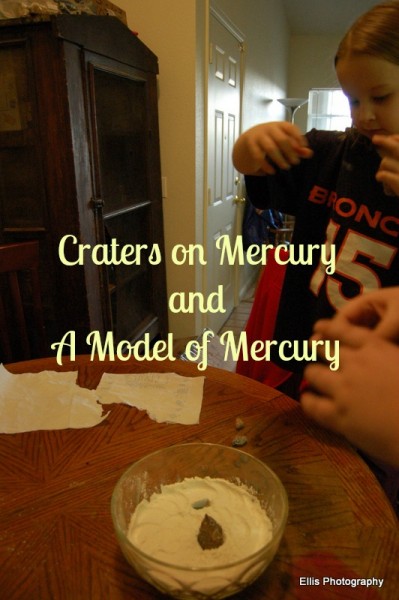
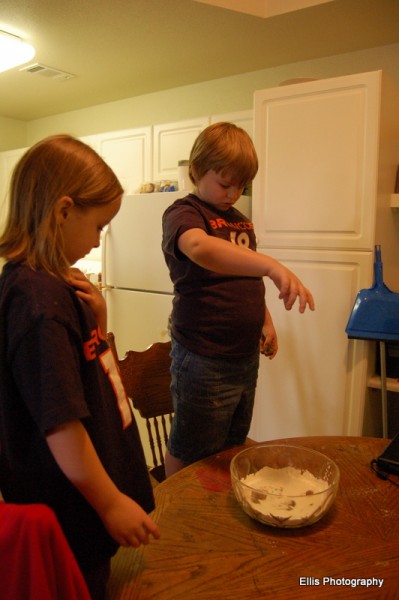
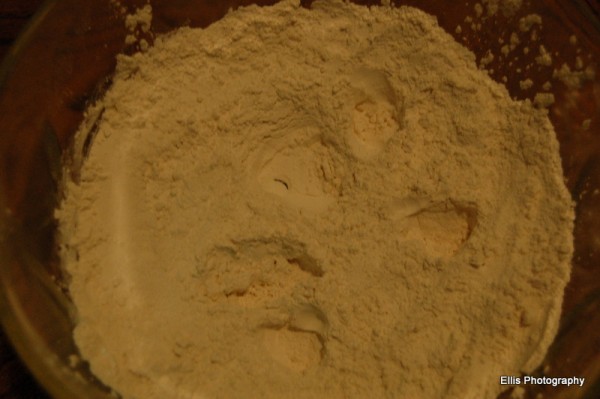
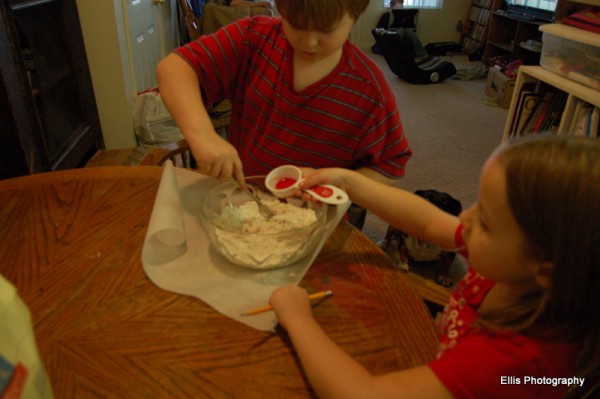
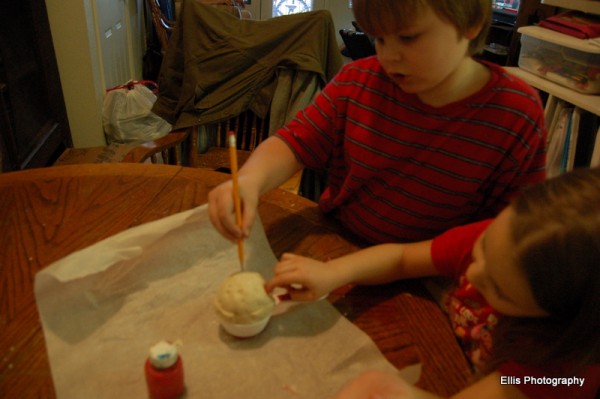
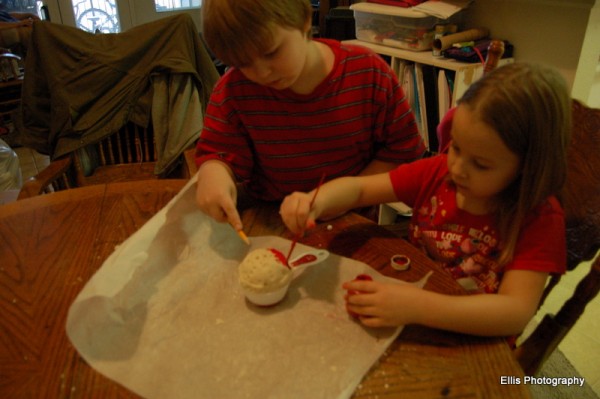

This looks like fun! Samuel and Claire will never forget the craters on Mercury once they have made some craters themselves!